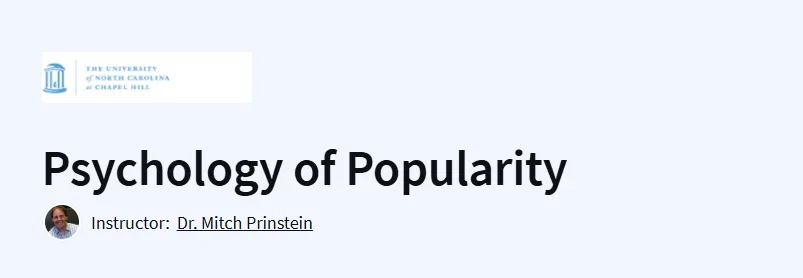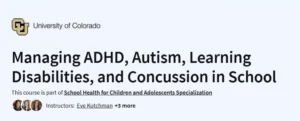What you will learn in Psychology of Popularity Course
- Psychological principles behind social popularity
- Evidence-based strategies for positive influence
- Science of first impressions and charisma
- Networking techniques backed by research
- Relationship-building frameworks
- Digital popularity metrics and pitfalls
- Maintaining authenticity while being influential
Program Overview
Psychology of Popularity
⏱️ 1 weeks
- Examines different popularity types (likability vs. status), childhood development impacts, and longitudinal studies on social success.
Building Authentic Connections
⏱️1 weeks
- Covers active listening techniques, vulnerability principles, and research on meaningful vs superficial relationships.
Digital Age Popularity
⏱️ 1 weeks
- Analyzes social media algorithms, online/offline persona management, and psychological effects of virtual validation.
Applied Influence Strategies
⏱️ 1 weeks
- Teaches science-backed methods for professional networking, leadership presence, and ethical persuasion.
Get certificate
Job Outlook
- Salary influence: Strong networks correlate with 20% higher earnings
- Promotion potential: Likable employees are 40% more likely to be promoted
- Professional value: Critical for leadership and client-facing roles
- Certification benefit: Enhances soft skills credentials
Specification: Psychology of Popularity
|
FAQs
- You’ll discover how childhood popularity continues to influence adult behaviors and even DNA expression.
- Learn how popularity is scientifically studied, including sociometric profiling and popularity subgroups across ages.
- Explore behaviors that make someone popular—or unpopular—quickly, and how these translate into adult social dynamics.
- Understand the role of physical attractiveness, parental influence, and intelligence in shaping popularity.
- Uncover how popularity impacts mood, mental health, delinquency, and long-term life outcomes.
- The course comprises six modules, each requiring about 1 hour, totaling roughly 6–8 hours.
- It’s a beginner-level, self-paced online course—you can go through it at your own speed.
- Includes videos, readings, and quizzes—one assignment per module to reinforce understanding.
- At the end, you can earn a shareable certificate, ideal for adding to your LinkedIn profile or résumé.
- Several platforms note flexible commitment—around 1–2 hours per week for effective pacing.
- No prerequisites—you don’t need prior training in psychology or research methods.
- The course is designed for anyone curious about social dynamics and their long-term implications.
- It’s grounded in empirical research but remains accessible, using clear language and examples.
- Includes reflections on social biases like hostile attribution or rejection sensitivity that anyone might relate to personally.
- Whether you’re a parent, professional, or lifelong learner, it offers valuable insights without jargon overload.
- The course is taught by Dr. Mitch Prinstein, a renowned psychologist at UNC-Chapel Hill and noted author.
- His research focuses on adolescent peer relationships and their effects on mental health and behaviors.
- This course builds on his decades-long research funded by prestigious institutions and includes real-world applications.
- Offered by the University of North Carolina at Chapel Hill—a respected institution known for social sciences.
- Learners and reviewers praise the course for its engaging delivery and practical insights.
- Parents and caregivers: Learn how early social experiences shape children and how to support healthy development.
- Educators and youth workers: Gain tools to understand peer dynamics and promote positive environments.
- Professionals in HR, leadership, or mentoring roles: Insights into popularity dynamics can inform team cohesion and social influence.
- Anyone curious about social behavior: The course offers self-reflection into how perceived popularity affects our lives and choices.
- Lifelong learners looking for evidence-based understanding of social influence and behavioral health.





